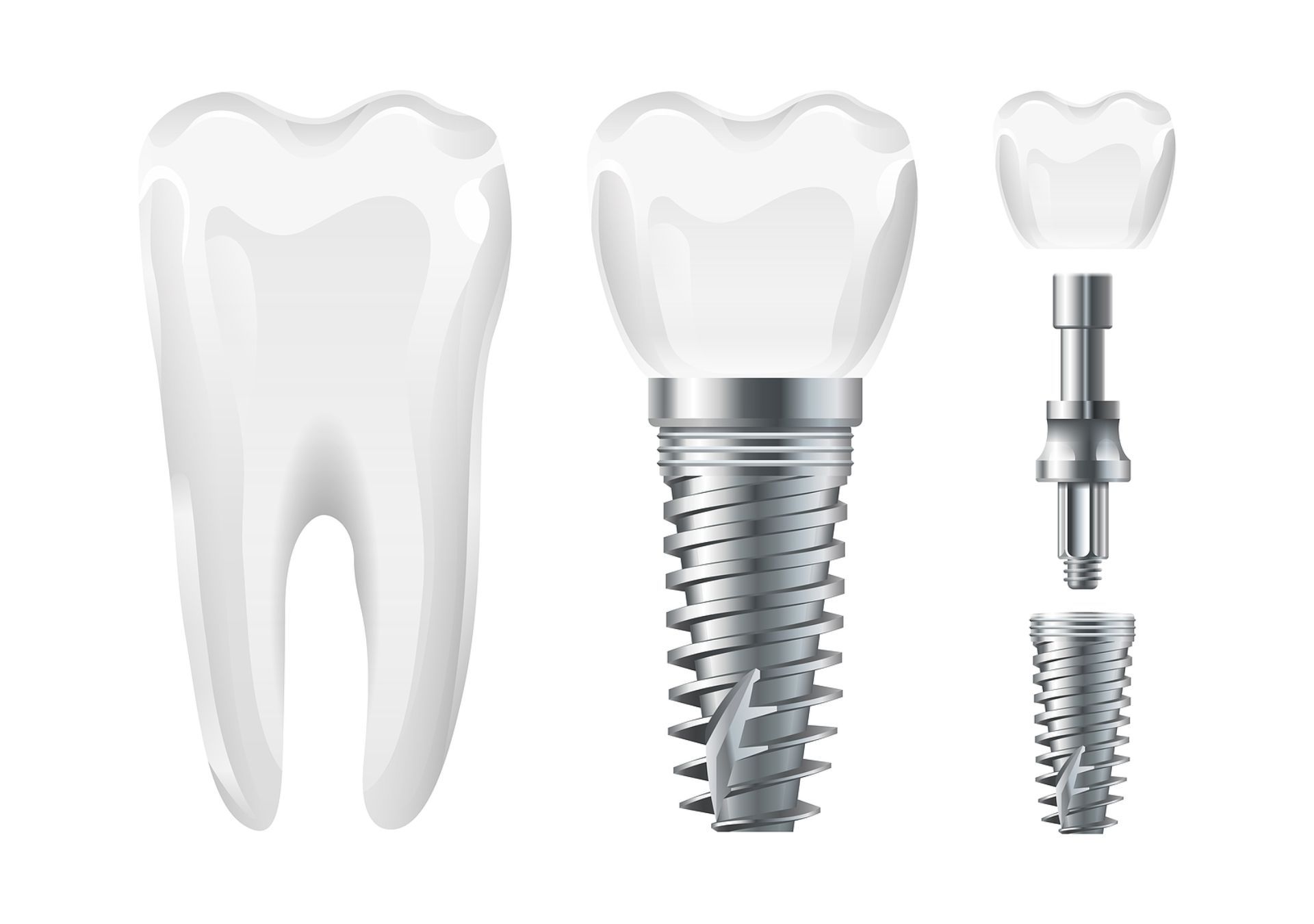Dental Implants 101: Types, Process & Is It Right for You?

Missing teeth can affect more than just your smile. They can make eating difficult, change how you speak, and even impact your confidence. While bridges and dentures are common solutions, many people now choose dental implants as a long-lasting, natural-looking option. If you’re considering implants but aren’t sure where to start, this guide will walk you through the types available, the process involved, and how to know if they’re right for you.
What Are Dental Implants?
Dental implants are small titanium screws that act as artificial roots for replacement teeth. They are surgically placed into the jawbone and provide a secure base for crowns, bridges, or even full sets of teeth. Because implants fuse with the bone over time, they create a stable and durable foundation that looks and functions like natural teeth.
Types of Dental Implants
Not all implants are the same, and the right option will depend on your needs:
- Single Tooth Implants – Ideal for replacing one missing tooth with a crown secured to the implant.
- Multiple Implants – Used when several teeth in a row are missing, supporting a bridge anchored by implants.
- Full Arch Implants – Sometimes called “all-on-four,” these support an entire upper or lower set of teeth with only a few strategically placed implants.
Your dentist will help determine which option best restores your smile and fits your lifestyle.
The Dental Implant Process
While the idea of surgery can feel daunting, implant treatment is carefully planned and usually less uncomfortable than patients expect. Here’s what the journey typically looks like:
- Consultation and Assessment: Your dentist will check your oral health and bone structure to confirm that you’re a good candidate.
- Implant Placement – The titanium screw is inserted into your jawbone under local anaesthetic.
- Healing and Integration – The implant fuses with your bone in osseointegration over a few months.
- Restoration – An attached custom crown, bridge, or denture gives you a natural-looking, functional smile.
Do Dental Implants Hurt?
Feeling nervous about oral surgery is normal, but most patients are pleasantly surprised. Implant placement is usually less invasive than a tooth extraction and is carried out with a local anaesthetic. Some mild swelling or discomfort may follow, but this can be managed with simple pain relief and usually passes within a few days.
How Long Do Implants Last?
With proper care, dental implants can last decades and often for life. Good oral hygiene, regular check-ups, and healthy gums ensure your implants remain strong and stable. Many patients find implants to be the most durable tooth replacement option available.
Are Dental Implants Right for You?
Implants are suitable for most adults with missing teeth, but your dentist will check factors such as:
- Bone density in your jaw
- Gum health
- Lifestyle habits such as smoking
- Overall medical history
Even if you’ve been missing teeth for some time or have reduced bone volume, additional procedures (like bone grafting) can sometimes make implants possible.
Restoring Smiles in Hawkesbury
At Hawkesbury Family Dental, we believe every patient deserves to smile confidently. Our experienced team provides safe, effective implant treatments tailored to your needs. From your first consultation to your final restoration, we’ll guide you through every step of the process.
Contact us to discuss if dental implants are the right choice for you.









